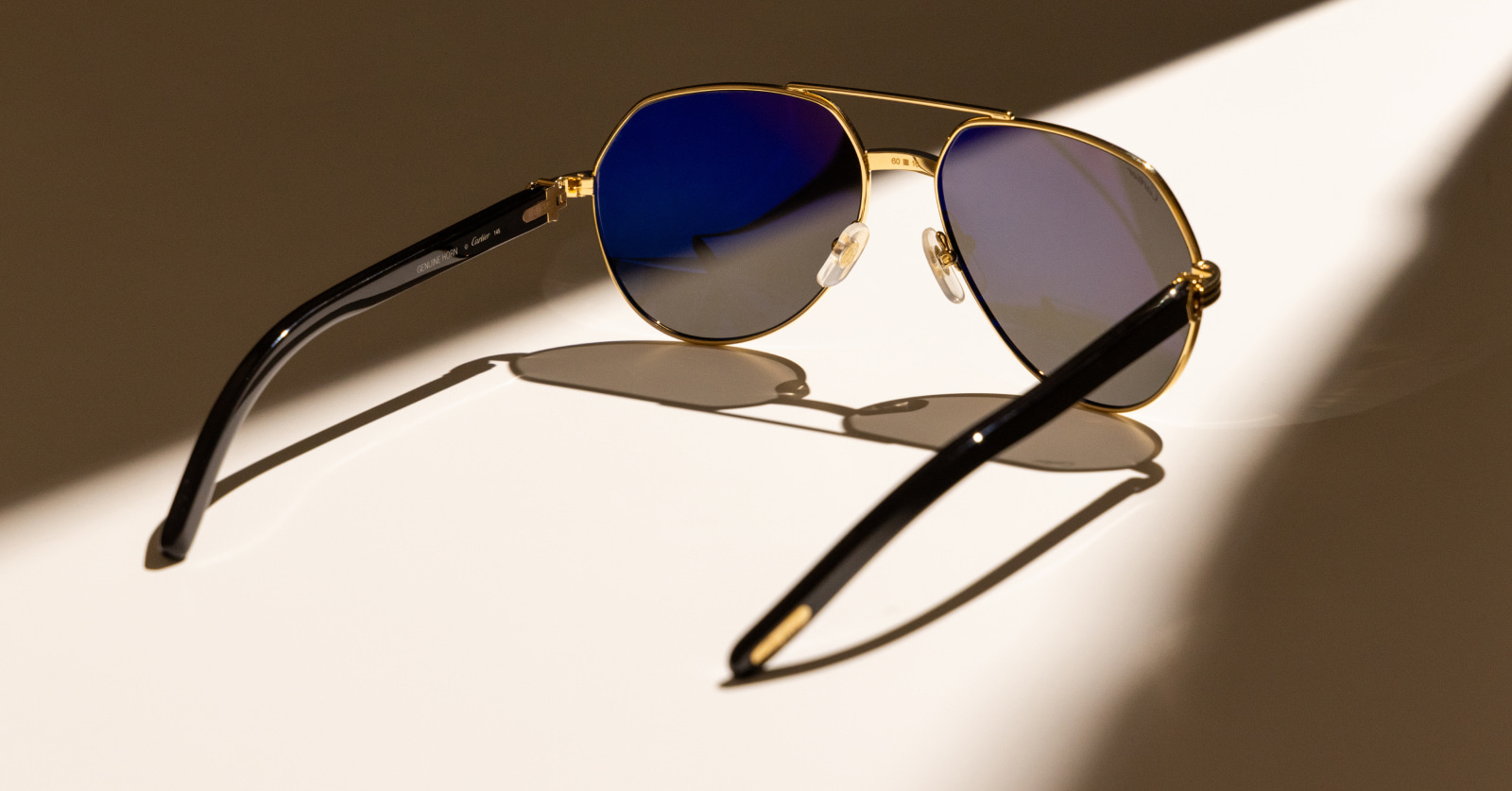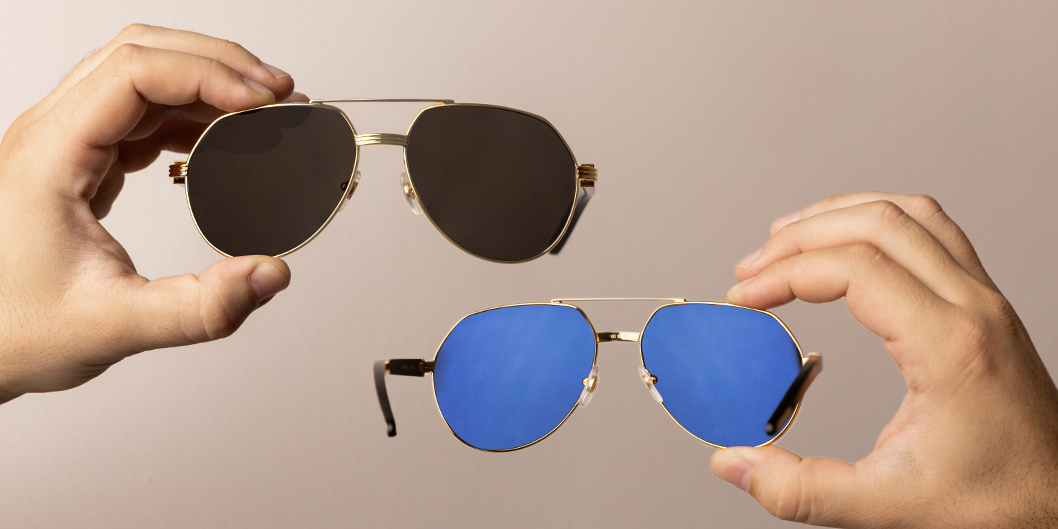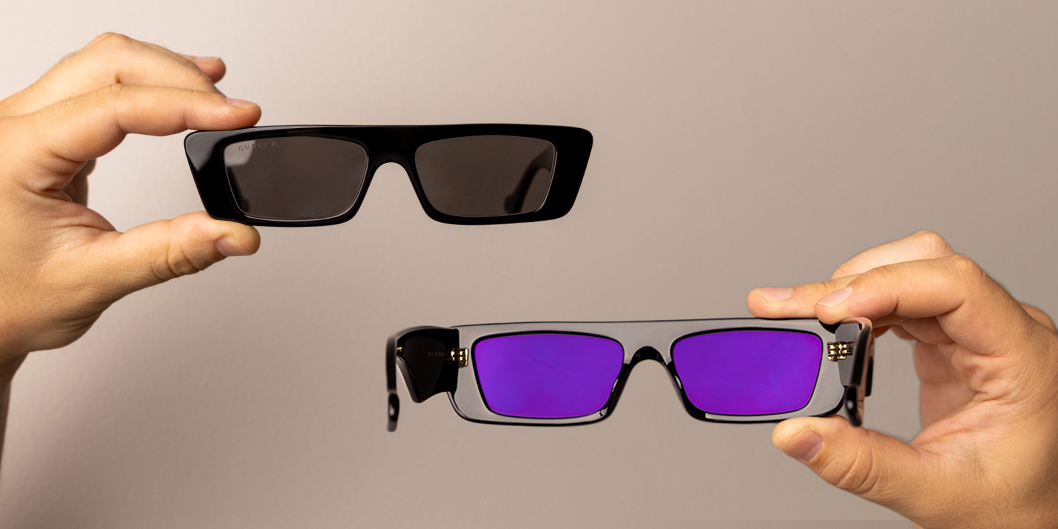Are Polarized Sunglasses Really Better? Here’s What I Learned From Wearing Them
I’m not sure what it is, but I’ve never connected the concept of polarized sunglasses with fashion eyewear. When shopping for a pair of sunglasses, the lenses were always a purely aesthetic aspect for me. Sure, good quality designer shades should protect your eyes from UV and reflection, but that’s a given.
Other lens aspects never really interested me. I don’t wear prescription glasses, so maybe that’s why: seeing was never part of the problem. That is until I became curious about the merits of polarized sunglasses. I first started noticing them more when my favorite designers began adding polarized options to their eyewear collections. Brands like Gucci, Oliver Peoples, and even Cartier have released polarized shades for the new season, and they’re nothing like the sporty gas station ones I’ve connotated (incorrectly) with the feature.
So when I tried on my first pair of polarized sunglasses, I started to notice the real differences with how the light was filtered, but I didn’t understand what it meant. So what better way to get educated than go straight to the experts? I’ve asked our resident optician Massimo for some more information on polarized sunglasses.
Below, nine key lessons he taught me about the pros and cons of wearing polarized sunglasses.
1. Polarized Sunglasses Mean Improved Vision
It makes sense that light was filtering differently when I wore my polarized sunglasses. Massimo says, “this is because they are fitted with special lenses which have been chemically treated to block certain amounts of light. They improve vision because the lenses reduce glare, especially when outdoors.“
2. They Are Better For Preventing Eye Strain
Compared to sunglasses with standard UV protection, polarized shades are better at preventing eye strain. That’s because they reduce brightness, so your eyes feel better adjusted and less tired. “But don’t get that mixed up with UV protection, as they don’t protect ‘more’ against UV rays than standard lenses,” Massimo adds.
3. They Work By Creating Vertical Openings For Light
Polarized sunglasses are designed to allow only vertical light to pass through. Massimo explains, “They block horizontal light. In outdoor settings you can think of horizontal light coming from flat surfaces like the ground, water, or even a car hood. With polarized lenses, the ‘horizontal light’ which creates the glare we talked about earlier is successfully blocked.”
4. They’re Great For Outdoor Sports
Fishing, snowboarding, skiing and even golf are sports where wearing polarized sunglasses can help the most. I’m not really one for many extreme outdoor sports, (yes, I deem fishing extreme) but I did ask some of my avid skiing friends and they confirmed that polarized sunglasses are the best for the slopes.
As Massimo says, “the horizontal light-blocking ability of polarized lenses helps improve vision when performing high or mid-intensity sports where a lot of external light reflection occurs.”
5. They Can Be Good For Driving
Yes! Using polarized sunglasses for daytime driving can help if you feel affected by light reflected off signs, bumpers, or even the road. You’ll notice the most difference when there is more glare, so if it’s a sunnier day for example.
6. There Is Little Evidence That Polarized Lenses Cause Headaches
“While you might have heard that polarized sunglasses cause migraines or nausea, there is very little evidence that this is true,” Massimo tells me. If anything, they cause the opposite: less eye strain means fewer headaches.
7. You Clean Them Just As You Would Normal Lenses
When I first got my very first pair of polarized sunglasses, I was worried I was going to ruin them after the first wear by cleaning them incorrectly. But Massimo assured me that my fear is irrational: you can clean your polarized sunglasses the same way you would clean any pair of sunglasses or eyeglasses.
8. You Might Need To Take Them Off When Looking At Screens
One of the disadvantages of polarized sunglasses is that you might have trouble when looking at screens. When I first looked at my phone with my polarized shades on, my screen seemed ‘wavy.’
According to Massimo, this is normal: “it's possible to also see screens as darker or black altogether. This is due to the polarized lenses blocking horizontal light waves, so it will consider your screen as ‘glare’ and block that too.”
9. They Help Reduce Blue Light, But Not Completely
“Polarized sunglasses are a great choice for avoiding eye fatigue, but they’re not the magic solution for everything,” Massimo explains. “While polarized lenses reduce blue light, consider going directly for anti-blue light lenses if you want a pair of sunglasses that completely block blue light from computer screens or your phone.”
10. You Should Buy Polarized Sunglasses From Reliable Shops and Sellers
Because you can’t easily tell the difference between polarized lenses and standard UV lenses, Massimo advises to go to a specialist eyewear store, opticians or a trusted designer eyewear reseller when picking out your polarized lenses. “This way you can be assured of the style’s authenticity and won’t miss out on quality.”


